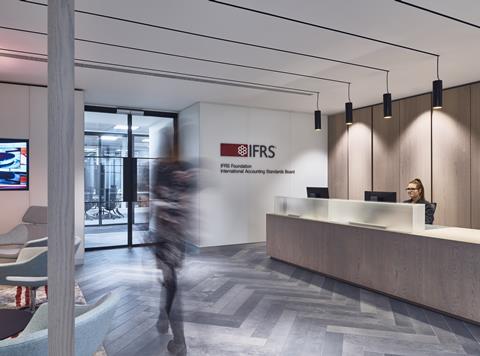The IFRS Foundation and the Global Reporting Initiative (GRI) are to collaborate with the aim of creating an interconnected approach for sustainability disclosures, according to a joint announcement.
The announcement follows criticism that the Foundation’s newly set up International Sustainability Standards Board (ISSB) is taking too narrow an approach to developing corporate sustainability disclosure standards, although ISSB supporters and chair Emmanuel Faber have said there is no conflict between the investor-focused standards the ISSB is developing and a “double materiality” approach that also considers a company’s impact on the environment and not just how environmental matters affect it.
“For those interested in considering impact when assessing enterprise value, using the standards set by the ISSB and GSSB together will offer a complete and compatible suite of sustainability disclosures,” said Faber. “This agreement will see the two standard-setting boards cooperate in pursuit of that objective.”
In their statement, the Foundation and the GRI said their agreement reflected the importance of ensuring compatibility and interconnectedness of investor-focused baseline sustainability information and information intended to serve the needs of a broader range of stakeholders.
“The IFRS Foundation and GRI recognise the considerable public interest in aligning, where possible, their respective work programmes, terminology and guidance – helping to reduce the reporting burden for companies and to further harmonise the sustainability reporting landscape at an international level,” they said.
The GRI describes itself as the leading global standard-setting for sustainability reporting that addresses an organisation’s impact on the economy, environment and people for a multi-stakeholder audience. It was the European Union’s accounting body’s “first pick” of organisations to partner with for work on EU corporate sustainability reporting standards.

Martijn Bos, policy adviser at the Dutch institutional investor corporate governance and sustainability forum Eumedion, said relevant impact reporting is of great importance to investors.
“We can only cheer that the IFRS Foundation recognises the wealth of experience GRI brings on impact reporting and GRI’s willingness to facilitate the ISSB’s goal to provide investor-relevant corporate reporting that obviously extends well into impact reporting.”
Two pillars
In their statement, the Foundation and the GRI said that by working together, they provide two “pillars” of international sustainability reporting, investor-focused capital market standards developed by the ISSB and GRI standards designed to meet multi-stakeholer needs.
“The MOU [memorandum of understanding] between GRI and the IFRS Foundation is a strong signal to capital markets and society that a comprehensive reporting system, which combines financial and impact materiality for sustainability reporting, is possible on a global scale,” said Eelco van der Enden, CEO of GRI.
“Aligning GRI’s established and widely adopted standards for sustainability impacts with the investor-focused standards being developed by the ISSB will benefit both companies and investors, as well as a wide range of stakeholders around the world.”
According to the joint announcement, under the agreement the ISSB and the GRI’s sustainability standards board (GSSB), will seek to coordinate their work programmes and standard-setting activities.
The Foundation and GRI will also join each other’s consultative bodies related to sustainability reporting activities.
“We look forward to aligning work programmes and to making the two-pillar corporate reporting system a reality, with financial and sustainability reporting on an equal footing”
Judy Kuszewski, chair of the GSSB
Judy Kuszewski, chair of the GSSB, said the collaboration between the bodies demonstrated a shared commitment to the global alignment of disclosure requirements.
“We look forward to aligning work programmes and to making the two-pillar corporate reporting system a reality, with financial and sustainability reporting on an equal footing.”
Erkki Liikanen, chair of the IFRS Foundation Trustees, said the agreement with the GRI would “help ensure capital market standards are developed in a way that minimises reporting burden for those companies also using GRI Standards”.
Carol Adams, a professor of accounting at Durham University and a critic of the ISSB’s formation and remit, welcomed news of the collaboration.
“This endorsement of the importance of reporting on the impacts of companies on society, the environment and economies will strengthen the credibility of the ISSB standards,” she wrote on LinkedIn. “The starting point of any reporting regulation must always be about the impact of companies on sustainable development. That affects all of us, including investors.”
First exposure drafts next week
The decision to form the ISSB was announced at the COP26 climate change summit in Glasgow last year, with the IFRS Foundation saying it would co-ordinate a merger of the Value Reporting Foundation – the host organisation of the Sustainability Accounting Standards Board (SASB) – with the Climate Disclosure Standards Board to form the new board.
The ISSB is aiming to next week release exposure drafts of climate change and general disclosure requirements, which follow on from prototype reporting standards.
Read the digital edition of IPE’s latest magazine















